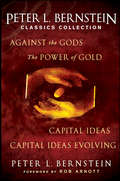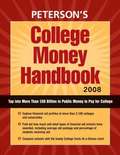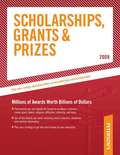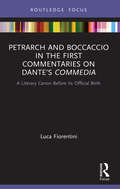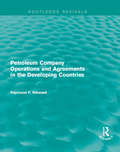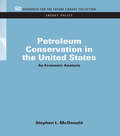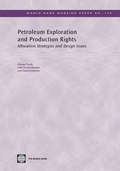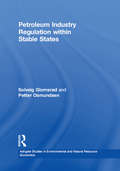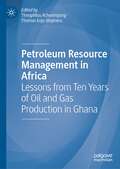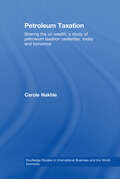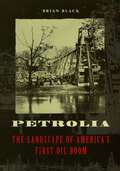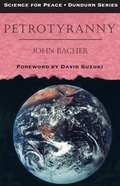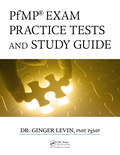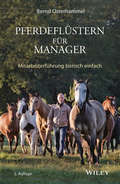- Table View
- List View
Peter Guber: The "Me" vs. "We" Brand
by William Ellet Stephen A. Greyser Nelson GaytonWell-known film producer Peter Guber must decide whether to commit to a time-consuming personal project. He is about to sign a contract for a business book in which he will share what he has learned in his long career. At the same time, he is keenly aware of problems and uncertainties affecting Mandalay Entertainment, a privately-owned company in which he is principal. Mandalay produces movies and television content, owns minor league baseball teams, and is pushing into digital content. Mandalay is trying to reinvigorate its core movie and television businesses, maintain growth in the sports business, and be prepared for the opportunity to buy a major league professional sports franchise. Does Guber eliminate all personal projects and stay tightly focused on guiding his company? On the other hand, there may never be a good time to write a book. He also has to consider the potential impact of a book project on his personal brand and the Mandalay company brand.
Peter L. Bernstein Classics Collection
by Peter L. BernsteinA classic collection of titles from one of the world's greatest financial writers One of the foremost financial writers of his generation, the late Peter Bernstein had the unique ability to synthesize intellectual history and economics with the theory and practice of investment management. Now, with the Peter L. Bernstein Classics Collection e-bundle, you will be able to enjoy some of the most important and critically acclaimed books by this engaging investment writer-Capital Ideas, Against the Gods, The Power of Gold, and Capital Ideas Evolving. Capital Ideas and Capital Ideas Evolving traces the origins of modern Wall Street, from the pioneering work of early scholars and the development of new theories in risk, valuation, and investment returns, to the actual implementation of these theories in the real world of investment management Against the Gods skillfully explores one of the most profound issues of our time-the role of risk in our society-in a non-technical and accessible style The Power of Gold tells the story of how history's most coveted, celebrated, and inglorious asset has inspired romantic myths, daring explorations, and titanic struggles for money and power Engaging and informative, Peter L. Bernstein Classics Collection puts the insights of one of the greatest financial writers of our time at your fingertips.
Peter Welz: When a Marquee Prospect Plays Hardball (A)
by James K. Sebenius Ellen KnebelDescribes the hardball tactics facing Peter Welz, who seeks to negotiate a make-or-break contract with a vastly larger potential client. Welz's counterpart team is led by Preston Spitzer, a notoriously tough player who fully understands his side's massive advantages in the process. With the economic fate of Welz's newly public smaller firm in the balance, Welz and his team must figure out how to handle some very tough tactics by Spitzer and his minions aimed at extracting lopsided contract concessions. These tactics include demeaning remarks, repeated threats to opt for a competitor, misrepresentations, repudiation of previously agreed provisions, last-minute demands, divide-and-conquer moves, and a waiting game that exploits the smaller firm's evidently urgent need for a closure. The (A) case sets up the negotiations and poses an immediate tactical challenge in the context of the overall process. The (B) case describes the strategies, tactics, and results of these negotiations, along with Welz's broader insights into a more productive approach to the common challenge of dealing with very hard bargainers.
Peterson's College Money Handbook 2008
by Peterson'sExpanded and freshly updated, College Money Handbook is a great resource for anyone looking to supplement his or her federal financial aid package with aid from colleges and universities. This comprehensive directory points you to complete and accurate information on federal grants, need-based grants, academic scholarships, ethnicity-based awards, and more.
Peterson's Scholarships, Grants and Prizes 2009
by Peterson'sScholarships, Grants and Prizes provides up-to-date information on millions of privately funded awards available to college students. It contains detailed profiles of awards, based on ethnic heritage, talent, employment experience, military service, and other categories, that are available from private sources, such as foundations, corporations, and religious and civic organizations.
Petite Playthings, Inc.--1984 (A)
by Benson P. ShapiroProvides background information for the (B) case, in which a young sales person is asked for a bribe by an experienced children's wear buyer.
Petrarch and Boccaccio in the First Commentaries on Dante’s Commedia: A Literary Canon Before its Official Birth (Young Feltrinelli Prize in the Moral Sciences)
by Luca FiorentiniThis text proposes a reinterpretation of the history behind the canon of the Tre Corone (Three Crowns), which consists of the three great Italian authors of the 14th century – Dante, Petrarch, and Boccaccio. Examining the first commentaries on Dante’s Commedia, the book argues that the elaboration of the canon of the Tre Corone does not date back to the 15th century but instead to the last quarter of the 14th century. The investigation moves from Guglielmo Maramauro’s commentary – circa 1373, and the first exegetical text in which we can find explicit quotations from Petrarch and Boccaccio – to the major commentators of the second half of the 14th century: Benvenuto da Imola, Francesco da Buti and the Anonimo Fiorentino. The work focuses on the conceptual and poetic continuity between Dante, Petrarch, and Boccaccio as identified by the first interpreters of the Commedia, demonstrating that contemporary readers and intellectuals immediately recognized a strong affinity between these three authors based on criteria not merely linguistic or rhetorical. The findings and conclusions of this work are of great interest to scholars of Dante, as well as those studying medieval poetry and Italian literature.
Petro-Aggression
by Jeff D. ColganOil is the world's single most important commodity and its political effects are pervasive. Jeff Colgan extends the idea of the resource curse into the realm of international relations, exploring how countries form their foreign policy preferences and intentions. Why are some but not all oil-exporting 'petrostates' aggressive? To answer this question, a theory of aggressive foreign policy preferences is developed and then tested, using both quantitative and qualitative methods. Petro-Aggression shows that oil creates incentives that increase a petrostate's aggression, but also incentives for the opposite. The net effect depends critically on its domestic politics, especially the preferences of its leader. Revolutionary leaders are especially significant. Using case studies including Iraq, Iran, Libya, Saudi Arabia and Venezuela, this book offers new insight into why oil politics has a central role in global peace and conflict.
Petrobras in Ecuador (A)
by Aldo Musacchio Lena G. Goldberg Ricardo Reisen de PinhoOn October 18, 2007, Ecuador's President Rafael Correa announced his intention to migrate Petrobras' existing participation contracts to exploit oil reserves in Ecuador's Blocks 18 and 31 to servicing agreements under which Petrobras would be paid a production fee and reimbursed for investment costs but all recovered oil would belong to the government. Correa also announced a dramatic increase in corporate taxes and changes to other contracts to which Petrobras was a party. All foreign oil companies operating In Ecuador would be similarly affected and any company refusing to "renegotiate" its contracts would face a 100% tax on profits. How should Petrobras respond to Ecuador's riding roughshod over its contracts? Should Petrobras take the Ecuadorian government to arbitration? Or would it be better to pursue a negotiated solution similar to that reached in Bolivia a year earlier? How should Petrobras balance its fiduciary duties to and the best Interests of its shareholders with the interests of the Brazilian government? How should it communicate with its various constituencies?
Petrolera Zuata, Petrozuata C.A.
by Benjamin C. Esty Mathew Mateo MillettPetrozuata is a proposed $2.5 billion oil-field development project in Venezuela. The case is set in 1997 as the project sponsors, Conoco and PDVSA (Venezuela's national oil company), are planning to meet with various development agencies and rating agencies regarding the proposed financial structure. The sponsors hope to raise a portion of the $1.5 billion debt in the capital markets, which will require an investment-grade rating. The key questions are whether the project will achieve an investment-grade rating and, if not, how to finance the project. Describes what turned out to be an extremely well-crafted financial transaction, one that was named "Deal of the Year" in 1997 by virtually every journal covering project finance.
Petroleum Company Operations and Agreements in the Developing Countries (Routledge Revivals)
by Raymond F. MikesellOriginally published in 1984, this study focuses on petroleum agreements between non-OPEC LDCs with oil-importing LDCs and how issues such as high oil prices affect each country. The information presented in this study was drawn from interviews with petroleum officials in petroleum companies, petroleum ministries and unpublished documents such as contracts and focussing on case studies of countries such as Peru, Guatemala and Malaysia. This title will be of interest to students of environmental studies and economics.
Petroleum Conservation in the United States: An Economic Analysis (RFF Energy Policy Set)
by Stephen MacdonaldThe author develops an economic framework for analyzing state regulation of oil and gas and concludes that existing regulations fall short of assuring optimum well spacing, production rates, use of associated gas, and exploration. Originally published in 1971.
Petroleum Exploration and Production Rights: Allocation Strategies and Design Issues
by Silvana TordoMany governments rely on oil companies to efficiently exploit natural resources. Governments have the challenging task of deciding which companies should be awarded exclusive rights to explore, develop, and produce their petroleum resources, and on what conditions such rights should be awarded. This paper analyzes the available evidence on the advantages and disadvantages of various systems used by petroleum-producing countries to allocate petroleum exploration, development, and production rights, and considers the policy implications of each system. The experience of six petroleum-producing countries is presented in detail, and numerous other examples are provided to derive lessons of wider applicability. The paper presents various conclusions for policy makers about the optimal design of allocation systems.
Petroleum Fiscal Systems
by Eduardo G. Pereira Erik T. JarlsbyPetroleum fiscal systems are arrangements for sharing the economic value from petroleum extraction between the host nation and the companies engaged in the extraction. In most countries, oil and gas resources are under the control of the national Government. The activities of exploiting the resources are undertaken by firms, some of which are owned by the state. Petroleum resource management therefore is an interaction of two key parties: The enterprises which carry out operations of finding and extracting petroleum from the ground, and the Government as custodian of the resources on behalf of the host nation which ultimately owns them. The book reviews the various instruments which may form the petroleum fiscal system of a jurisdiction, with numerous examples from countries having configured their systems very differently. It also reviews fiscal valuation and control, related cross-border issues, and the economic analysis and design of fiscal systems related to a variety of development scenarios found in modern petroleum operations.
Petroleum Industry Regulation within Stable States (Ashgate Studies in Environmental and Natural Resource Economics)
by Solveig Glomsrød Petter OsmundsenThis book addresses the challenges facing stable democratic states in dealing with oil companies in order to secure general welfare gains. Political stability means that such states should be able to take a longer term perspective. The principal topic considered is petroleum industry regulation but the insights extend to other non-renewable natural resources. A particular issue addressed is the question of tax competition between producing countries. Within the context of company/government relations the book considers such current topics as the challenges of dealing with merged companies and the strategic choices facing tax authorities.
Petroleum Resource Management in Africa: Lessons from Ten Years of Oil and Gas Production in Ghana
by Theophilus Acheampong Thomas Kojo StephensThis book explores Ghana’s newfound oil wealth and how the revenues it generates can be used to produce inclusive economic growth and development. Comparisons are made with neighboring countries, including Nigeria, Angola, and Equatorial Guinea, to highlight how petroleum resources can create jobs, increase research and development skills, and generate government revenue to invest in local services and infrastructure. The impact of global developments, such as the 2014-16 oil slump and innovation within the industry, are also covered. Petroleum Resource Management in Africa to provide policy suggestions and an operational framework for other petroleum producing countries. It will be of interest to academics and policymakers interested in resource and development economics.
Petroleum Taxation: Sharing the Oil Wealth: A Study of Petroleum Taxation Yesterday, Today and Tomorrow (Routledge Studies In International Business And The World Economy Ser.)
by Carole NakhlePetroleum taxation is the universal instrument through which governments seek to determine the crucial balance between the financial interests of the oil companies and the owners of the resource. This book addresses how governments have and continue to approach this problem, the impacts of different policy choices and how these are being adapted to
Petrolia: The Landscape of America's First Oil Boom (Creating the North American Landscape)
by Brian BlackThis award-winning history provides a fascinating look at the Civil War era oil boom in western Pennsylvania and its devastating impact on the region. In Petrolia, Brian Black offers a geographical and social history of a region that was not only the site of America’s first oil boom but was also the world’s largest oil producer between 1859 and 1873. Against the background of the growing demand for petroleum throughout and immediately following the Civil War, Black describes Oil Creek Valley’s descent into environmental hell. Known as “Petrolia,” the region of northwestern Pennsylvania charged the popular imagination with its nearly overnight transition from agriculture to industry. But so unrestrained were these early efforts at oil drilling, Black writes, that “the landscape came to be viewed only as an instrument out of which one could extract crude.” In a very short time, Petrolia was a ruined place—environmentally, economically, and to some extent even culturally. Black gives historical detail and analysis to account for this transformation.Winner of the Paul H. Giddens Prize in Oil History from Oil Heritage Region, Inc.
Petrotyranny
by David Suzuki John BacherHigh gas prices aren’t the end of the world- but they may be the beginning of the end. This, at least, is the feeling of many who shudder at the staggering power oil-rich countries have over the world’s political affairs.In Petrotyranny, John Bacher uncovers the frightening facts of the world’s oil industry. He reveals that the worst dictatorships control six times the reserves that are under democratic control, and explores the potential for global conflict that exists as the demand for energy increases and the oil supply decreases. What kind of power will these dictatorships possess in the future? How many wars will be fought over the ever-shrinking supply of oil?Bacher takes an optimistic approach, viewing the problem as a challenge: the world’s democracies need to devise a creative response to avoid the looming crisis. That is, start replacing fossil-fuel burning with renewable energy - and start the process now.
PfMP Exam Practice Tests and Study Guide (Best Practices in Portfolio, Program, and Project Management)
by PMP, PgMP, LevinRecognizing the importance of portfolio management, the Project Management Institute (PMI) has launched a new certification entitled the Portfolio Management Professional (PfMP). PfMP Exam Practice Tests and Study Guide is the most comprehensive resource available to help you prepare for and pass the PfMP certification exam. It provides covera
Pferdeflüstern für Manager: Mitarbeiterführung tierisch einfach
by Bernd OsterhammelZwischen Mitarbeiterführung und Pferdeführung gibt es vielfältige Parallelen. Dies ist der humorvolle Ausgangspunkt für die Entfaltung einer neuen Führungskultur. Erfolgreiche Mitarbeiterführung ist der unverzichtbare Schlüssel, wenn ein Unternehmen seine Ziele erreichen will. Doch Management und Mitarbeiter machen sich hier oft das Leben schwer. Welche Vorgaben brauchen Mitarbeiter und welche hindern sie, ihr Potenzial zu entfalten? Welches Maß an Kontrolle ist notwendig? Was bedeutet "Vertrauen" im Kontext des Unternehmens? Pferde sind Menschen im Verhalten oft erstaunlich ähnlich. Sie sind nur viel ehrlicher. Diese ehrliche Rückmeldung ist das, was vielen Führungskräften heute fehlt. Das Buch hilft dem Leser bei der Entwicklung seiner Führungsqualitäten. Es zeigt, wie mühelos Erfolg sein kann, wenn man erkannt hat, dass die wichtigste Schraube für Veränderung im Unternehmen beim Umgang mit den Mitarbeitern sitzt. In der 2., komplett aktualisierten und überarbeiteten Auflage fließen weitere Praxisbeispiele und Erkenntnisse aus Seminaren und Trainings der letzten 10 Jahren seit Erscheinen der ersten Auflage ein. Neu ist außerdem das Thema Bewusstsein und Schöpferkraft in der Führung.
Pferdegestütztes Coaching – psychologisch basiert und wissenschaftlich fundiert
by Kathrin SchützIn diesem praxisrelevanten Buch erfahren Sie, warum das Coaching mit Pferden so wirkungsvoll ist und warum dabei Psychologie, Forschung und Praxis so wichtig sind. Sie erhalten Antworten auf die Frage, was hinter dieser Methode der Persönlichkeitsentwicklung steckt und wie verschiedene Coaching-Bausteine ressourcenorientiert zusammengefügt werden können. Ergänzt wird dies durch wissenschaftliche Studien, die das Pferdecoaching untermauern und auch Grenzen aufzeigen. Dazu lernen Sie, welche Anforderungen Coaches in Bezug auf Qualitätsstandards erfüllen sollten, um Klienten mit fundierten und nachhaltigen Intervention in ihrer Persönlichkeit zu stärken. Neben den psychologischen Erklärungen erhalten Sie zahlreiche Anwendungsbeispiele, so dass Sie die Form der pferdegestützten Arbeit direkt nachvollziehen können. Zur Veranschaulichung ist das Buch mit zahlreichen Abbildungen und Videoclips angereichert. Zielgruppen: (Pferdegestützte) Coaches, Klienten, die mehr über die Coaching-Variante erfahren möchten und Kritiker, die das Pferdecoaching für Ponys-im-Kreis-Führen halten. Dass das Coaching mit Pferden in professionellen Händen so viel mehr ist, zeigt das Buch facettenreich auf.Zur Autorin: Prof. Dr. Kathrin Schütz ist Professorin für Wirtschaftspsychologie, Ausbilderin, Coach und Forscherin für pferdegestützte Persönlichkeitsentwicklung mit über 10 Jahren Erfahrung sowie Expertin für Psychologie im Reitsport.
Pfizer Inc.: Building an Innovation Center
by Stefan Thomke Ashok NimgadeThe case describes Pfizer's efforts to build and run an innovation center in Cambridge, Massachusetts. As the center goes through different periods of leadership and strategic models, its relationship with the corporation and other research sites is explored. The case study describes in detail the challenges of building an innovation center within a large corporation, including organization, incentives, and scientific issues.

